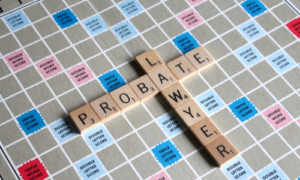 When Do You Need Probate? When someone has died, there are circumstances when you need probate before you can do anything about their financial affairs.
When Do You Need Probate? When someone has died, there are circumstances when you need probate before you can do anything about their financial affairs.
Because even if you were named as an executor in their will, you can’t start distributing their estate until you have the legal right to do so.
Yet probate isn’t applicable to everyone or needed in every case. Here’s everything you need to know about when applying for it is necessary.
To discuss any of our services, please either call us on 01244 917 822 or complete a Free Online Enquiry.
What Is Probate?
Probate is a specific kind of legal right. In this case, it gives you the right to deal with the estate – that’s the property, financial assets, and possessions – of someone who has died.
This right comes in the form of a written legal document – called a “grant of probate” – that gives you the authority to start distributing the deceased’s estate and tying up their affairs.
When Do You Need To Apply For Probate?
It’s actually easier to answer the question “when don’t you need probate?” There are some situations where you will not need or be able to apply for probate:
- Only savings or “low” total estate value – if the person who has died only had assets in the form of monetary savings or had an estate valued at less than £10 000.
- Joint shares or money – if someone else has joint ownership of things like the deceased’s shares or bank account, that other person tends to now get full ownership.
- Joint tenants – if the deceased co-owned property or land with someone else, again this is likely to pass to the co-owners.
- You are not named as an executor – if you are not named as an executor in the will, you cannot usually apply for probate.
- If there is no will – if there are no executors named because there is no will, the closest living relative of the deceased can apply for a similar legal right known as “letters of administration”.
For the vast majority of other cases, you will need to apply for probate if you are named as an executor in a deceased person’s will.
How To Find Out If You Need To Apply For Probate
If you’re unsure, the easiest way to find out whether you need to apply for probate is to talk to your solicitor or to contact each of the relevant financial institutions individually.
Each institution the deceased had dealings with – this might include banks, investment brokers, or mortgage lenders – has its own regulations as to who can access the accounts of a person who has died. You’ll need to:
- Notify each organisation of the death
- Send them a copy of the death certificate
- Ask them about their specific rules
The Process Of Applying For Probate
Applying for a grant of probate – the legal document that gives you the legal right of probate – is a fairly involved process.
The first steps are all about valuing the person’s entire estate. This will involve locating all of the deceased’s assets in the form of bank accounts, shares, property, investments, and possessions. It will also include their liabilities, such as any debts they might owe or credit cards they might have.
You’ll then need to file and pay any Inheritance Tax that may be due (you actually need to file regardless of whether any tax will need to be paid) and pay any administration fees.
Following this, you will receive a grant of probate within around eight weeks. You’ll then be able to administer the deceased’s estate following the wishes they left behind in their will.
Of course, this is all only relevant when you need probate. When you don’t, there’s a different process to follow.
Not Sure If You Need Probate?
Let’s talk about it. E A Harris provides Shotton, Connah’s Quay, Queensferry, Ewloe, Hawarden and Buckley with the friendly, approachable legal services they need – and has done for over 100 years.
Set up a cost and commitment-free consultation to discuss how to apply for probate and if it’s right for your situation today.
Get in touch today.
To discuss any of our services, please either call us on 01244 917 822 or complete a Free Online Enquiry.
“I am very grateful for you and your staff for carrying out this transaction for me and my co-executor. It’s another job very well done”
(Mrs OB – Probate Sale)
